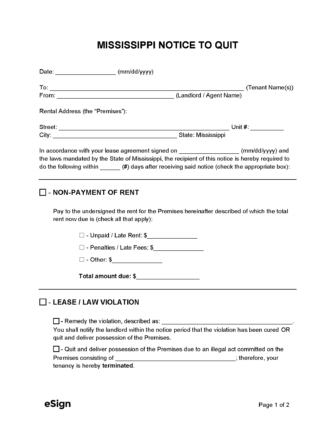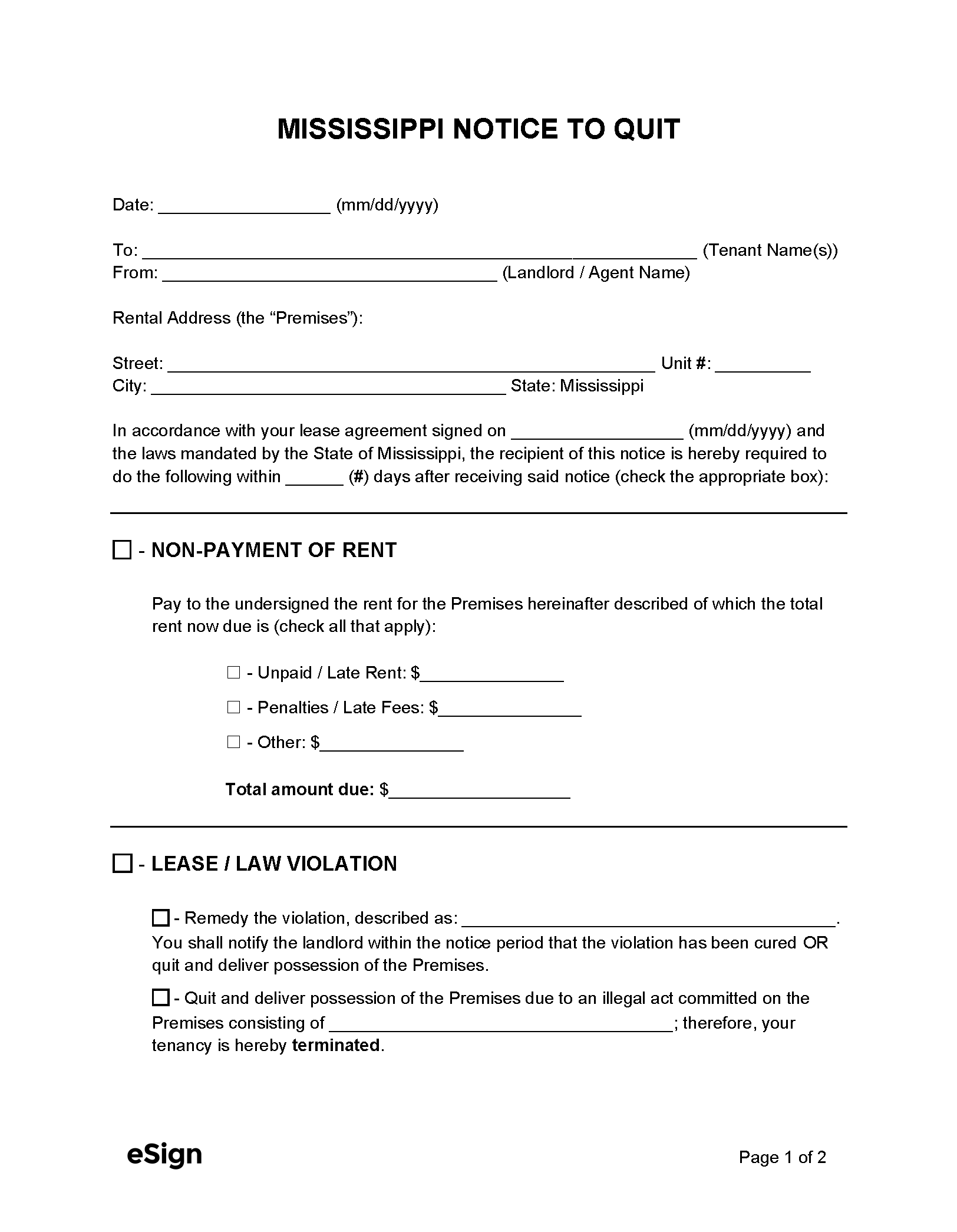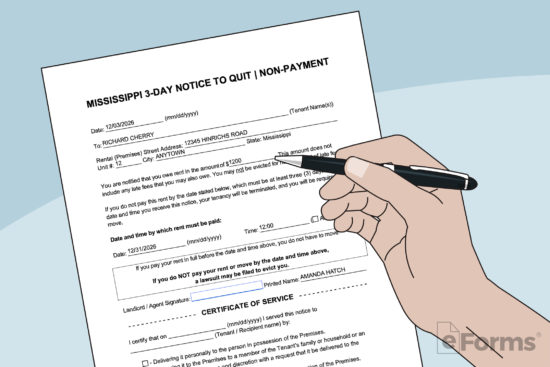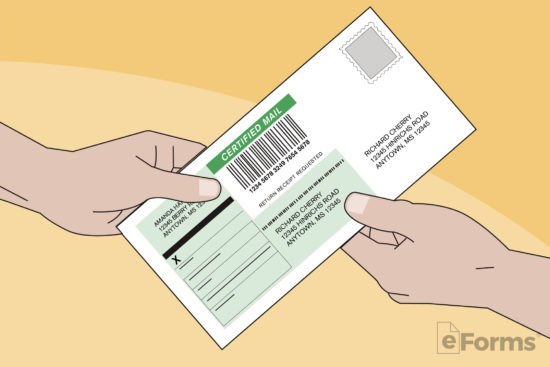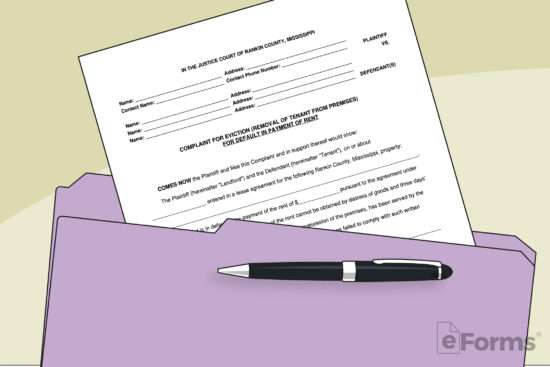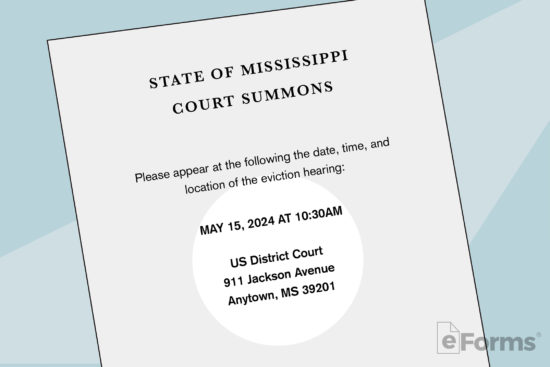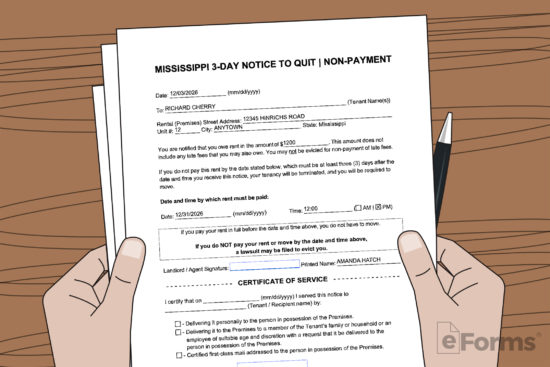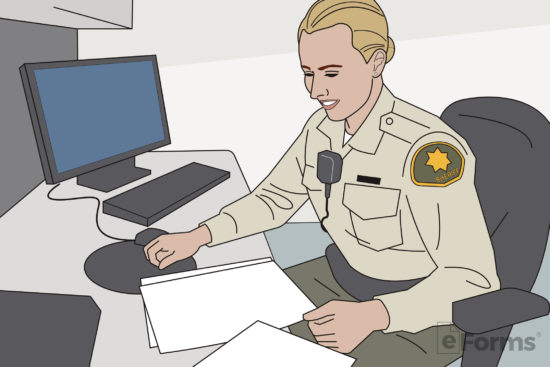Eviction Notices: By Type (4)
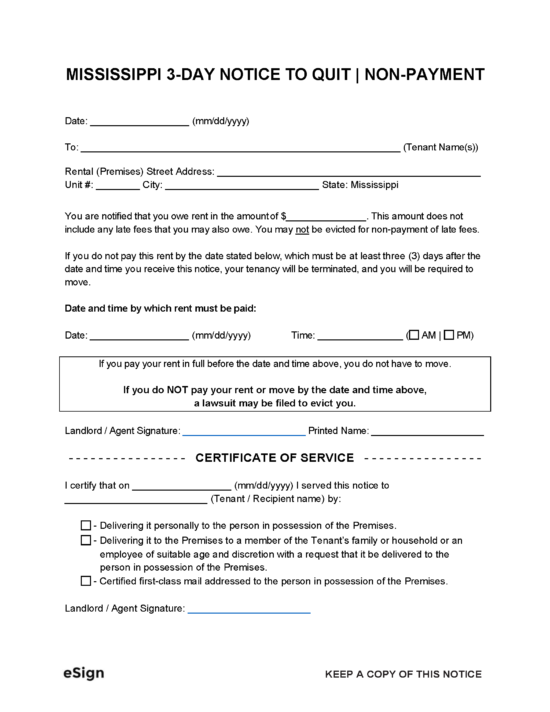 3-Day Notice to Quit | Non-Payment – Upon receipt of this notice, the tenant must either pay rent or vacate in three days. 3-Day Notice to Quit | Non-Payment – Upon receipt of this notice, the tenant must either pay rent or vacate in three days.
Download: PDF, Word (.docx), OpenDocument |
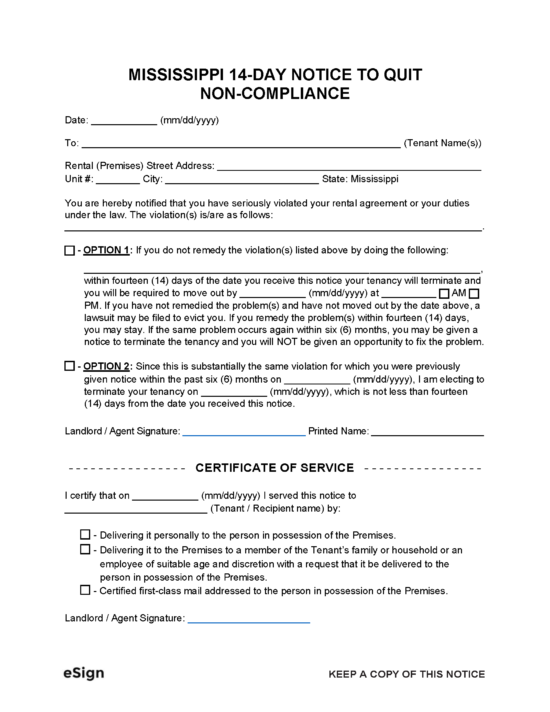 14-Day Notice to Quit | Non-Compliance – Informs a tenant that they have breached their rental terms and must cure the breach or vacate in 14 days. 14-Day Notice to Quit | Non-Compliance – Informs a tenant that they have breached their rental terms and must cure the breach or vacate in 14 days.
Download: PDF, Word (.docx), OpenDocument |
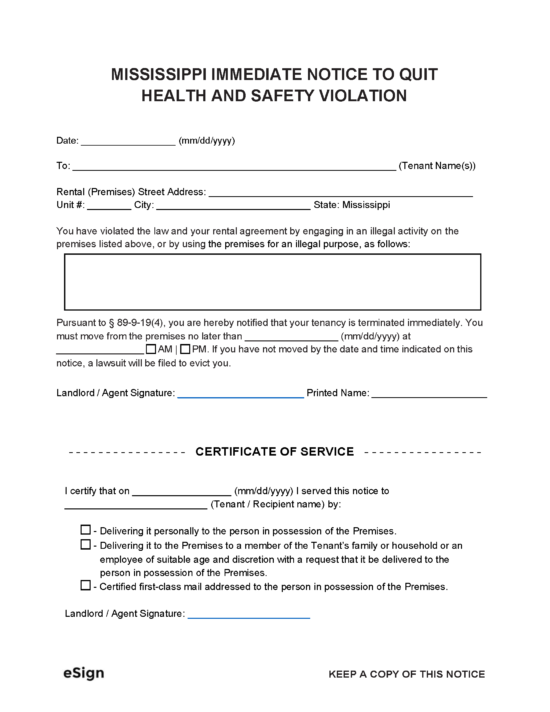 Immediate Notice to Quit | Health and Safety Violation – Relays that the tenant must vacate due to a health and safety violation. Not legally required. Immediate Notice to Quit | Health and Safety Violation – Relays that the tenant must vacate due to a health and safety violation. Not legally required.
Download: PDF, Word (.docx), OpenDocument
|
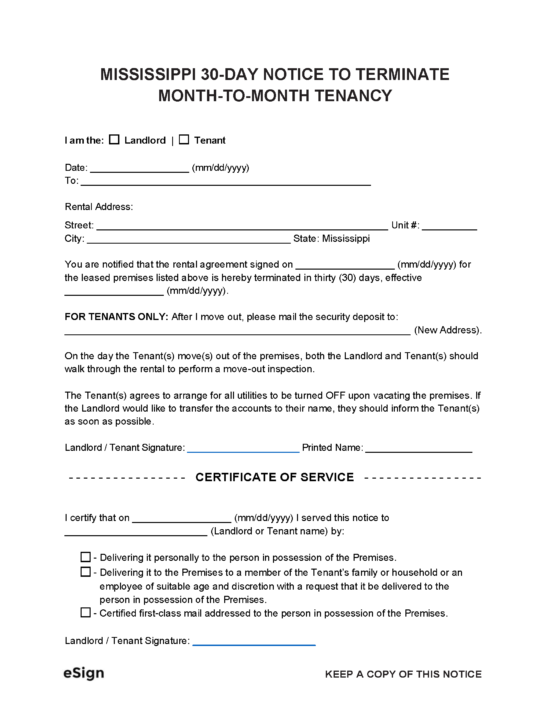 30-Day Notice to Terminate Month-to-Month Lease – Used to terminate a periodic tenancy that renews on a month-to-month basis. 30-Day Notice to Terminate Month-to-Month Lease – Used to terminate a periodic tenancy that renews on a month-to-month basis.
Download: PDF, Word (.docx), OpenDocument |
Notice Requirements
How to Evict a Tenant in Mississippi
Step 1 – Draft a Notice to Quit
A Notice to Quit corresponding with the cause for termination must be prepared by the landlord.
Step 2 – Deliver Notice to Quit
The Notice to Quit will need to be delivered to the tenant using one of the following methods:
- Personal delivery to the tenant or an occupant of the dwelling who is at least 13
- Certified mail with return receipt
- Posted to the front door (if the residence is unoccupied only)
Step 3 – File Complaint for Eviction
If the tenant doesn’t obey the notice terms, the landlord can proceed by filing a Complaint for Eviction (SAMPLE) and Cover Sheet with the local justice court.
In non-payment cases, the tenant can stop the eviction process by paying the landlord in full anytime before a judgment is made.
Step 4 – Serve Summons
The court will issue a Summons stating the date, time, and location of the eviction hearing. The landlord must arrange to have the sheriff’s office or a disinterested person who is at least 18 serve the Summons and Complaint on the tenant.
The tenant can deny the allegations made against them by filing an Answer with the court. Regardless of whether an Answer is filed, the tenant will still be required to appear in court for the eviction hearing.
Step 5 – Eviction Hearing
The parties must appear in court on the date and time indicated in the Summons. If either party fails to attend, the hearing will proceed and likely rule in favor of the present party.
If the court rules in favor of the landlord, they will be awarded a judgment to recover possession of the premises. If the tenant prevails, they will be permitted to remain on the premises and continue their occupancy.
Step 6 – Evict Tenant
No less than five days after the judgment is made, the landlord may request a Writ of Possession to authorize the tenant’s eviction.
If the tenant remains on the premises after the Writ is issued, the landlord must take the Writ to the sheriff’s office and ask to have the tenant removed from the property.
Court Forms + Resources
Forms
- Cover Sheet
- Signing: Landlord
- Answer
- Signing: Tenant and Notary Public
- Complaint for Eviction (Non-Payment) – Sample
- Signing: Landlord and Notary Public
- Complaint for Eviction (Breach of Lease) – Sample
- Signing: Landlord and Notary Public
- Summons
- Signing: N/A
- Writ of Possession
- Signing: N/A
Resources
